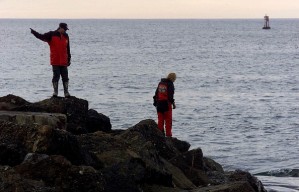Scientists with the World Register of Marine Species (WoRMS) revealed that over 1,000 new ocean fish species have been identified in only the past eight years, 122 of which are sharks and rays. Despite the exciting identification rate, researchers are worried they won't be able to discover all of the species in the ocean quickly enough.
These numbers mean an average of 10 new marine species are identified every month, WoRMS reported. The new species also include 131 members of the goby family and Mediterranean barracuda. Other forms of ocean life described in 2014 include two dolphin species and a whopping 139 sponges that had never been described before.
WoRMS also compared a number of global databases and found out of almost 419,000 species names, 190,400 were duplicate identities; one sea snail had been given 113 different names. This was balanced out because in 2014 alone, 1,451 new marine creatures were added to WoRMS at an average of about four per day. There are also believed to be about 1,000 species that are yet to be identified already captured in jars around the world.
"Though a few relatively minor gaps remain, we consider the register now virtually complete with respect to species described throughout scientific history," said WoRMS co-chair Jan Mees, Chair of the European Marine Board and Director of VLIZ. "And, of course, we are constantly updating with newly-described species, revisions of taxonomy, and adding occasional species that have been overlooked."
Researchers with the Census of Marine Life, which is connected to WoRMS, estimate a staggering 500,000 to 2 million marine species are yet to be discovered and described. It would take at least 360 years to discover and describe all of these species, even at the rapid rate of identification demonstrated by WoRMS.
"Indeed, it is humbling to realize that humankind has encountered and described only a fraction of our oceanic kin, perhaps as little as 11 [percent]," Mees said. "Sadly, we fear, many species will almost certainly disappear due to changing maritime conditions - especially warming, pollution and acidification - before we've had a chance to meet."
See the most recent statistics on species identification HERE.








